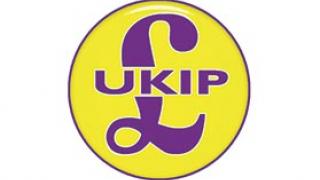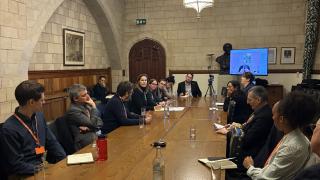
UNA-UK has written to UK political parties asking them for a clear statement outlining their vision for the UK's relationship with the United Nations. The responses are reproduced on our website in the order they were received. They represent the most comprehensive and, in some cases, the first UN-focussed party statements.
This work is part of UNA-UK's year-long campaign to promote informed debate on foreign policy, in particular, Britain's role at the UN, ahead of the general election on 7 May. While these matters are now - very belatedly - starting to be debated, these conversations are happening in reaction to events, a hallmark of successive UK governments' foreign policy.
UNA-UK is deeply concerned that British policy-makers have consistently underestimated the need to invigorate and develop the UN, which is essential to solving many of the serious challenges facing the UK and the world. If you agree, join us in calling for an active and progressive UK foreign policy
The UK Independence Party’s position on the UK and the United Nations
As a charter member of the United Nations (UN) and one of five permanent members of the UN Security Council (UNSC), Britain plays an important role in the life of the United Nations. Indeed, the very first General Assembly of the United Nations, with 51 nations in attendance, took place at Central Hall, Westminster on 10 January 1946.
UKIP acknowledges the vital contribution of UN peacekeeping to global security, as well as the UK's key role in terms of financing and mandate setting. However, we have been disappointed in the role played by successive British governments in the Middle East and North Africa and have a policy of non-intervention in such matters - unless vital British interests are at stake. However, our position on reversing the Coalition Government’s defence cuts would certainly afford scope for greater involvement in UN peace-keeping.
As you will be aware, UKIP believes that the UK would be better off outside the European Union (EU), which, in recent years, has morphed into a sovereign state in its own right, rather than the ‘Common Market’ the British People were told they were joining in 1973.
However, the EU has been an observer member at the United Nations (UN) since 1974 and has had enhanced participation rights since 2011. The EU itself does not have voting rights, but it is represented alongside its 28 members, two of which, France and the UK, are both permanent veto-holding members of the UNSC. We are aware that whilst UK remains a member of the EU, its UNSC seat will be in jeopardy from EU ‘power-grabs’.
In answer to the three specific questions posed by the UNA-UK:
- What can be done to stimulate informed public debate on the need for more effective international cooperation?
We believe that both the Foreign and Commonwealth Office and the Ministry of Defence could do more to publicise the work and values of the UN, thus influencing decision-makers and opinion-shapers to support UN goals.
- What are your three priorities for improving the UN?
The never-ending quest for reform, for improving the functioning of the United Nations, has been an integral part of the life of that body since its earliest days. We are aware that in recent years many member states have not paid their full dues and have cut their donations to the UN's voluntary funds. We would encourage payment of dues and financial reform of the UN.
We strongly support moves to reform the UN Development System. Its functions range from providing a forum for dialogue, decision-making and norm-setting, to research, advocacy, technical assistance and humanitarian aid. We are also encouraged by the results of the ‘Delivering as One’ pilot initiative.
We support the Secretary General’s reform agenda, which encourages an ambitious approach to issues, including the right allocation of resources and reviews on staffing needs and to realising the full potential of the Umoja Enterprise Resource project.
- How should the UN go about ‘earning its keep’ as a permanent member of the UN Security Council?
UN peacekeeping is integral to the UN’s stated mission to ‘save succeeding generations from the scourge of war’ and the UK plays an important role in the approval, design and funding of UN peacekeeping operations. However, over the last 20 years, there has been a marked reduction in the UK’s practical engagement. A UKIP administration would carefully examine the current manpower and logistical contribution of both our Armed Forces and the Ministry of Defence Police to the UN’s peace-keeping operations.
We would also look to review the number of officials on secondment to the UN in New York and the manning of the Defence section in the UK Mission to the UN. We would certainly revisit and update the Ministry of Defence Joint Doctrine Note 5/11 (JDN 5/11), dated July 2011, which sets out UK current thinking on Britain’s involvement in peace-keeping operations.
Click here to read the question as it was posed to parties
Click here to read the other parties' responses
NB. party responses have been publised in the order they were received






